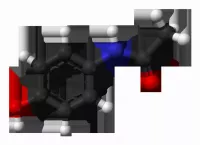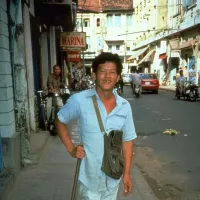Bangladesh–India relations formally began in 1971, rooted in India's crucial support for Bangladesh's independence during the Liberation War. Relations encompass extensive economic, political, cultural, and strategic ties. Key aspects include trade, water sharing of trans-boundary rivers (especially the Ganges), border management, and cooperation on counter-terrorism. While generally positive, complexities exist around border disputes, illegal immigration, and trade imbalances. Despite these challenges, both countries maintain a strong commitment to strengthening cooperation in various sectors, including connectivity, energy, and defense.
1905: Rabindranath Tagore composes Bangladesh national anthem
In 1905, Rabindranath Tagore, the Bengali Polymath from colonial India, created the national anthem of Bangladesh.
1905: Partition of Bengal
In 1905, the initial basis for modern-day Bangladesh came with the partition of Bengal.
1911: Rabindranath Tagore composes India national anthem
In 1911, Rabindranath Tagore, the Bengali Polymath from colonial India, created the national anthem of India.
1911: Reversal of the partition of Bengal
In 1911, the partition of Bengal was reversed amid much uproar. Bengal still lost some of its prestige with the announcement at the Delhi Durbar that the capital was to be moved to Delhi.
1971: India recognizes independent Bangladesh
In 1971, India formally recognized an independent Bangladesh (formerly East Pakistan) following India's military intervention in the Bangladesh Liberation War, helping Bangladesh secure its independence.
1971: Bangladesh Liberation War and Indo-Pakistani War
In 1971, the Bangladesh Liberation War occurred, resulting in Bangladesh's independence from Pakistan. The Indian Republic was a strong ally during the war and fought the Indo-Pakistani War of 1971.
1972: India's role in recognition of Bangladesh by 98 countries
According to the Diplomatic Bluebook for 1972 published by MoFA Japan, India played a crucial role behind the scenes in 1972, leading to the recognition of Bangladesh by 98 countries, which facilitated the unlocking of $1.3 billion in aid.
September 1974: Bangladesh recognized by the United Nations
Bangladesh was eventually recognized by the United Nations in September 1974, following behind-the-scenes efforts by India in 1972.
1974: Mujib-Indira accords
The Land Boundary Agreement (LBA) bill passed in the Indian Parliament on 7 May 2015, had been pending ratification since the 1974 Mujib-Indira accords.
June 1992: Lease of Teen Bigha Corridor
On 26 June 1992, India leased three bigha of land to Bangladesh to connect an enclave with mainland Bangladesh.
1996: Ganges Water Sharing Treaty concluded
In 1996, the historic Ganges Water Sharing Treaty was concluded between India and Bangladesh.
2000: Bangladesh Gains Full ICC Membership
In 2000, Bangladesh was granted Full membership at the International Cricket Council with India's assistance.
2001: Invasion of Padua Village
In 2001, between April 16 and April 19, Bangladesh Rifles (BDR) intruded into Pyriduwah, Meghalaya, leading to border tensions. Heavy firing occurred in Boraibari, Assam, on April 17 and 18, resulting in 16 BSF personnel going missing. By April 19, India reported that the BDR had withdrawn and the status quo was restored. On April 20, the bodies of the missing personnel were returned, some showing signs of mutilation.
2001: Start of Increased Border Shootings
In 2001, the number of deaths of Bangladeshi citizens along the Indo-Bangladesh border began to increase due to the "shoot-to-kill" policy implemented by India's Border Security Forces (BSF).
2003: Electricity Act 2003
Under the Electricity Act 2003, the Indian companies could pool power in an exchange. A consumer would be free to buy it from anyone. This concept of power pool within India can also be enlarged to cover the neighbouring countries like Bangladesh, Bhutan and Nepal after the establishment of a sub-regional power pool and necessary inter-connections among these countries are put in place.
2009: Start of Sheikh Hasina's premiership
From 2009, at the start of Sheikh Hasina's premiership, India and Bangladesh enjoyed the best time in their bilateral relationship.
2010: Sheikh Hasina's Visit to India
In 2010, Former Prime Minister Sheikh Hasina visited India to sign a number of deals.
September 2011: Border demarcation accord signed
In September 2011, India and Bangladesh signed a major accord on border demarcation to end the 4-decade old disputes over boundaries, known as the Tin Bigha Corridor. India granted 24-hour access to Bangladeshi citizens in the Tin Bigha Corridor. The agreement included exchange of adversely held enclaves.
2011: Continued Border Shooting Concerns
By 2011, Human Rights Watch reported that nearly 1,000 Bangladeshis had been killed by India's Border Security Forces (BSF) since 2001, and the "shoot-to-kill" policy remained a contentious issue in talks between Bangladeshi and Indian officials. Despite Indian officials' promises to stop the shootings, Bangladeshi nationals continued to be shot dead by Indian troops in 2011.
2011: Manmohan Singh's Visit to Dhaka
In 2011, Former Indian Prime Minister Manmohan Singh visited Dhaka to sign a number of deals.
2011: India approves $750 million loan for Bangladesh infrastructure
In 2011, India approved a $750 million loan to support infrastructure development in Bangladesh.
2011: Resolution of Teen Bigha Corridor Dispute
In 2011, a dispute regarding the indefinite nature of the lease of the Teen Bigha Corridor was resolved through a mutual agreement between India and Bangladesh.
2012: India uses Bangladesh's territory for transportation
In 2012, Bangladesh allowed India's Oil and Natural Gas Corporation to ferry heavy machinery, turbines and cargo through Ashuganj for the Palatana Power project in southern Tripura.
October 2013: India starts exporting electricity to Bangladesh
From October 2013, India started exporting 500 megawatts of electricity a day to Bangladesh over a period of 35 years, using a 125-kilometre Baharampur–Bheramara transmission line. The two country's leaders also unveiled the plaque of the 1,320-MW coal-fired Rampal power plant, a joint venture between in the two nation countries.
November 2013: Wagah Border-like ceremony at Petrapole-Benapole border
From November 2013, a Wagah Border-like ceremony, including parades and lowering of flags, began as a daily routine at the Petrapole (India) - Benapole (Bangladesh) border checkpoint at sundown.
2013: Bilateral trade between India and Bangladesh at US$6.6 billion
In 2013, the bilateral trade between India and Bangladesh reached US$6.6 billion, with India's exports at US$6.1 billion and imports from Bangladesh at US$462 million.
June 2014: Sushma Swaraj visits Bangladesh
In June 2014, Indian External Affairs Minister Sushma Swaraj visited Bangladesh in her first official overseas trip and concluded various agreements to boost ties.
2014: India offers $1 billion soft loan for Bangladesh infrastructure
In 2014, India offered Bangladesh an additional $1 billion soft loan for infrastructure development.
May 2015: Indian Parliament passes Land Boundary Agreement
On 7 May 2015, the Indian Parliament, in the presence of Bangladeshi diplomats, unanimously passed the Land Boundary Agreement (LBA) as its 100th Constitutional amendment, thereby resolving all 68-year-old border disputes since the end of the British Raj. The bill was pending ratification since the 1974 Mujib-Indira accords.
June 2015: Narendra Modi visits Bangladesh and signs agreements
During Indian Prime Minister Narendra Modi's state visit to Bangladesh during June 2015, 22 agreements were signed, including maritime safety cooperation and curbing human trafficking and fake Indian currency. India extended a US$2 billion line of credit and pledged US$5 billion worth of investments.
June 2015: Historic land boundary agreement signed
In June 2015, a historic land boundary agreement was signed between Bangladesh and India, settling decades-old border disputes. Negotiations are still ongoing regarding the sharing of water from transboundary rivers.
July 2015: Enclave Exchange
On 31 July 2015, India and Bangladesh swapped 162 enclaves on the border region. Around 50,000 people became citizens of India or Bangladesh after living in limbo for decades. While 14,214 citizens of Bangladesh residing in 51 enclaves on the Indian side became Indians, a large number of people in the 111 Indian enclaves in Bangladesh preferred to stay with Bangladesh and just 979 opted to move to India. The total number of new Indian citizens will be 15,193.
2015: Narendra Modi visits Bangladesh
In 2015, Indian Prime Minister Narendra Modi visited Bangladesh. During this visit, long-pending land and maritime boundaries were resolved, and over ninety instruments were concluded in hi-tech areas.
2015: Modi honoured in Indian Science Congress
In 2015, Narendra Modi was honored at the 102nd Indian Science Congress, a picture of which was gifted to him by Muhammad Yunus during their meeting in April 2025.
2015: Narendra Modi's Visit to Bangladesh and Land Boundary Agreement
In 2015, Prime Minister Narendra Modi visited Bangladesh, marking a historic moment as the land boundary agreement was resolved.
2016: Criticism of Modi and Hasina electricity deal
The 2016 electricity deal between Modi and Hasina was criticized by Bangladeshi critics for setting a high price for the import of electricity, especially from Tripura. Equipment for the plant was sent through Bangladesh which waived most of the transit fees.
April 2017: Bangladesh and India sign defence agreements
In April 2017, during Sheikh Hasina's visit to New Delhi, Bangladesh and India signed two defence agreements to conduct joint military exercises and training. India also provided Bangladesh with a $500 million line of credit to purchase defence equipment.
November 2017: Adani Power inks pact with Bangladesh Power Development Board
On 8 November 2017, Adani Power announced that its arm, Adani Power (Jharkhand), had entered into a long-term agreement with Bangladesh Power Development Board to supply electricity from its upcoming 1,600 MW plant at Godda in Jharkhand.
2017: Indian medical students protest in Chittagong
In 2017, 400 Indian medical students protested in Chittagong after they failed to register with the Bangladesh Medical and Dental Council.
2017: Sheikh Hasina visits India
In 2017, Bangladeshi ex-Prime Minister Sheikh Hasina visited India, further strengthening bilateral ties. This contributed to the resolution of land and maritime boundaries and increased collaboration in technology.
September 2018: Bangladesh cabinet approves draft agreement with India
In September 2018, the Bangladesh cabinet approved the draft of a proposed agreement with India to allow it to use the Chittagong and Mongla sea ports for transporting goods to and from its land-locked northeastern states.
2018: Bangladesh-India bilateral trade over US$10 billion
In 2018, the bilateral trade between Bangladesh and India surpassed US$10 billion.
2018: Increase in bilateral trade
In the fiscal year 2018-19, bilateral trade between Bangladesh and India increased from US$7-9 billion in FY 2017-18 to US$9-10.46 billion, an increase of 28.5 percent.
March 2019: Enhancing defence cooperation and intelligence sharing
In March 2019, Indian Army's General M.M. Naravane visited Bangladesh to hold talks with General Aziz Ahmed regarding boosting intelligence sharing and defence cooperation, especially in the context of Myanmar's actions against insurgent groups.
August 2019: Closer cooperation to fight against extremist groups
During the visit of the Home Minister of Bangladesh to India in August 2019, both countries agreed for a closer cooperation to fight against extremist radical groups, terrorist organizations, smuggling of arms, drugs and fake currency and also organized crime as a shared priority.
2019: Controversy over the Citizenship Amendment Act (CAA)
In 2019, following the passage of the Citizenship Amendment Act (CAA) by the Indian Parliament, Bangladeshi ministers cancelled trips to India, and Sheikh Hasina criticized the CAA while affirming it was an "internal matter" of India.
2019: Bangladeshi ministers cancel state visits to India
In 2019, several Bangladeshi ministers cancelled their scheduled state visits to India as a response to India's Citizenship Amendment Bill.
February 2021: Bangladesh starts COVID-19 vaccinations with Indian vaccines
On 7 February 2021, Bangladesh began mass COVID-19 vaccinations using India's Serum Institute Covishield vaccines. However, the program was hampered when vaccine exports were halted due to a second wave of COVID-19 in India.
April 2021: Bangladesh sends medical aid to India
In April 2021, Bangladesh sent a relief package of medicines and medical equipment, including approximately 10,000 vials of Remdesivir (produced by Beximco), PPE kits, and various tablets, to India in response to the worsening COVID-19 situation.
May 2021: Bangladesh sends a second consignment of COVID-19 relief to India
In May 2021, the government of Bangladesh sent a second consignment of COVID-19 relief consisting of antibiotics, paracetamol, protective equipment and hand sanitiser to India.
October 2021: India's LOC initiative to Bangladesh
By October 2021, India had provided Bangladesh with about $7.862 billion through four Lines of Credit (LOC) programs, making Bangladesh the largest recipient under this initiative. $865 million had been disbursed, and contracts worth over $990.85 million had been awarded in the preceding three years.
2021: Protests against Narendra Modi's visit to Bangladesh
In 2021, massive protests in Bangladesh against the state visit by Indian PM Narendra Modi to the country led to the deaths of at least 14 people.
September 2022: Sheikh Hasina urges Indian businesses to invest in Bangladesh
During a state visit to New Delhi in September 2022, Prime Minister Sheikh Hasina urged Indian businesses to invest in Bangladesh's manufacturing, energy, transportation, and infrastructure sectors. CII President Sanjiv Bajaj highlighted opportunities in energy, infrastructure, and connectivity for shared prosperity, suggesting leveraging India's Digital India experience to sync with Digital Bangladesh.
2022: Raw cotton as a major Indian export to Bangladesh
According to The Observatory of Economic Complexity, in 2022, raw cotton accounted for about 21% of Indian exports to Bangladesh, with Bangladesh importing cotton primarily from India at about $942 million, making it a crucial raw material for Bangladesh's readymade garments sector.
2023: Bangladesh backs India in feud with Canada
In 2023, Bangladesh supported India in its diplomatic dispute with Canada over the killing of Hardeep Singh Nijjar, describing Canada as a "hub for murderers".
2023: Trojan 1337 cyberattacks on Bangladesh
In 2023, the Indian-based hacktivist group Trojan 1337 targeted Bangladesh, defacing government and educational institution websites, notably on India's Independence Day, August 15, 2023. Data breaches included the National Board of Revenue (NBR) breach.
August 2024: Bangladesh Floods
In August 2024, Bangladesh floods hampered Bangladesh–India relations.
August 2024: Resignation of Hasina
In August 2024, the resignation of Hasina occurred, marking a shift in the political landscape that later led to the first meeting between Muhammad Yunus and Narendra Modi in April 2025.
November 2024: Desecration of Indian flags and ISKON emblems
In late November 2024, reports surfaced regarding the desecration of Indian flags and ISKON emblems at several educational institutions in Bangladesh, including the Bangladesh University of Engineering and Technology and Dhaka University.
December 2024: India's foreign secretary visits Bangladesh
In early December 2024, the tensions between Bangladesh and India reduced after a diplomatic visit by India's foreign secretary. He conveyed that New Delhi desired increased engagement with Dhaka. Muhammad Yunus described relations with India as "very solid".
December 2024: Attack on Bangladesh Assistant High Commission in Agartala
On December 2, 2024, members of the Hindu Sangharsh Samity attacked the Bangladesh Assistant High Commission in Agartala, Tripura, burning the Bangladesh flag and causing vandalism. By December 3, 2024, Indian police made seven arrests and India's foreign ministry called the incident "extremely regrettable" and assured Bangladesh of increased security.
December 25, 2024: Indian High Commissioner expresses optimism
On December 25, 2024, the Indian High Commissioner Pranay Verma expressed optimism about Bangladesh–India relations, highlighting mutual benefits from their growing capabilities. The high commissioner stated "strong support" for a "democratic, stable, peaceful, progressive, and inclusive" Bangladesh.
2024: End of Sheikh Hasina's premiership
Throughout the premiership of Sheikh Hasina which ended in 2024, India and Bangladesh enjoyed the best time in their bilateral relationship.
January 1, 2025: Bangladesh Army Chief hints at positive outlook towards India
On January 1, 2025, an interview of the Bangladesh Army Chief Waker-Uz-Zaman with Prothom Alo English hinted at a positive outlook towards India. General Waker emphasized the importance of a balanced and mutually beneficial relationship between Bangladesh and India. He acknowledged both countries' dependence on each other.
April 2025: Muhammad Yunus and Narendra Modi meet in Bangkok
In April 2025, Chief Adviser Muhammad Yunus of Bangladesh and Indian Prime Minister Narendra Modi met for the first time since August 2024 in Bangkok. The meeting, described as "constructive, productive, and fruitful," covered topics such as the extradition of Hasina, border killings, water sharing, persecution of Hindu minorities, and provocative statements.
June 2025: Bangladesh–India relations in a "readjustment phase"
In June 2025, Bangladeshi Adviser of Foreign Affairs Md Touhid Hossain stated that Bangladesh-India relations were in a "readjustment phase," asserting Bangladesh's openness to engage with India.
2025: Bangladesh prioritizes good relations with India
In 2025, Bangladesh Foreign Affairs Adviser Md Touhid Hossain mentioned that Bangladesh's ties with India would "extend beyond a single issue" and assured that maintaining good relations with India was among the priorities.
2025: Trojan 1337 cyberattacks on Bangladesh
In 2025, Trojan 1337 continued its cyberattacks on Bangladesh, targeting websites on India's Independence Day.
Mentioned in this timeline
Remdesivir commercially known as Veklury is a broad-spectrum antiviral drug...

Paracetamol also known as acetaminophen is a commonly used over-the-counter...
India officially the Republic of India is a South Asian...
Myanmar also known as Burma is a Southeast Asian country...
Japan is an East Asian island country situated in the...
Pakistan officially the Islamic Republic of Pakistan is a South...
Trending
3 months ago McDonald's Employee Shoots Customer After Argument Over Delayed Order in Florida.

3 months ago Spoelstra regrets Ware decision after Heat loss; Knecht as superstar solution?

8 months ago Polio Eradication Efforts Intensify in Pakistan: Focus on Women Heroes and Campaigns
2 months ago Breeze Airways Cancels Redmond, Burbank Flights & Eugene Expansion Before Launch

8 months ago Patrick Reed trending alongside World Cup Soccer and Seahawks Football updates.

7 months ago Hegseth grilled, Defense Secretary testifies on budget, Trump updates: Duckworth impact.
Popular

Thomas Douglas Homan is an American law enforcement officer who...

William Franklin Graham III commonly known as Franklin Graham is...

Jupiter is the fifth and largest planet from the Sun...

XXXTentacion born Jahseh Dwayne Ricardo Onfroy was a controversial yet...

Kristi Noem is an American politician who has served as...

Instagram is a photo and video-sharing social networking service owned...